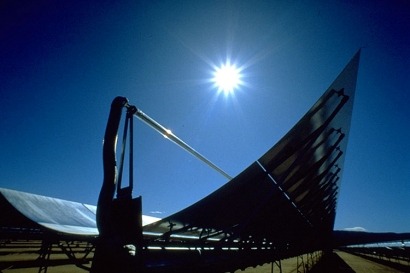
The company, a US-based joint venture between German-based Solar Millennium AG and Ferrostall AG, attributed the change in plans to the dramatic drop in the price of solar panels.
“This move underscores Solar Trust’s focus on maximizing the potential of our sites by deploying the right technology at the right time,” said Uwe T. Schmidt, Chairman and CEO of Solar Trust of America.
He added, “We develop solar projects at the size and scope of the largest conventional power plants, and in doing so validate solar as a mainstream energy source. Our expansive solar supply chain leverages economies of scale and improves the competitiveness of our projects and other utility-scale projects throughout the Southwest.”
Solar Trust broke ground on what is projected to be a 1,000 MW facility in June in California’s Riverside County. At the time, the plan was to build the project as four distinct, but interconnected power plants.
Now Solar Trust says that employing PV technology will allow the project to be built in phases rather than individual units.
Towards that end, it has formed a new joint venture with German-based utility-scale PV developer SolarHybrid AG.
The decision was taken four months the US Dept. of Energy granted the projects first phase, then units 1 and 2, a loan guarantee of $2.1 billion.
All of the electricity generated by the solar farm will be sold to Southern California Edison through a long term power purchase agreement.
Despite the change in plans, Schmidt emphasized the continued importance of solar thermal technology in Solar Trust’s product portfolio moving forward: “As the PV base in North America grows, the grid-stabilizing characteristics of CSP will be recognized and rewarded.”
For additional information:

